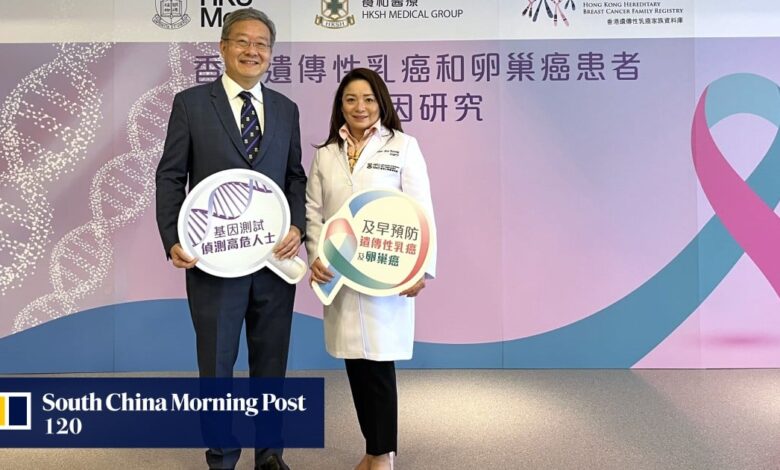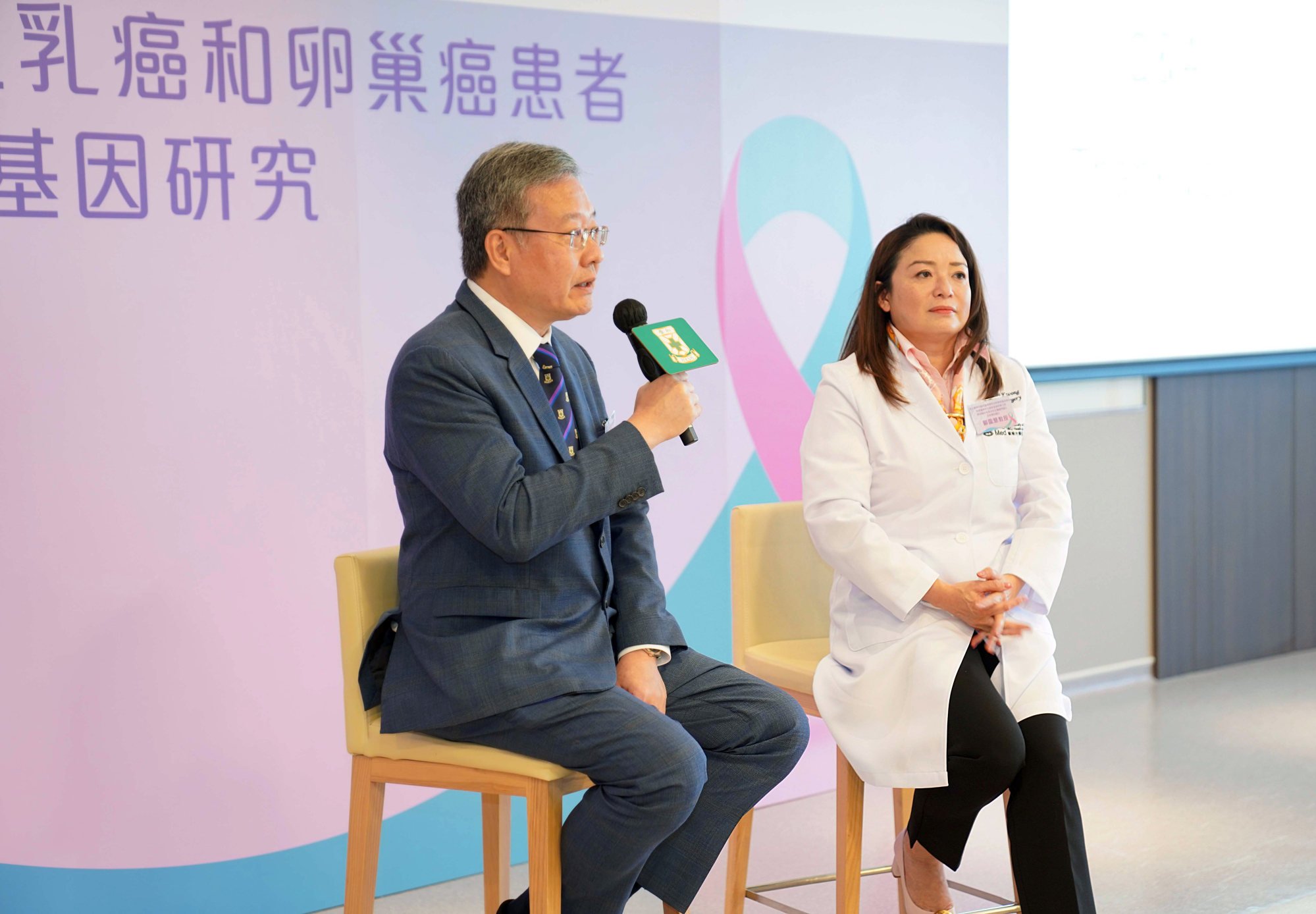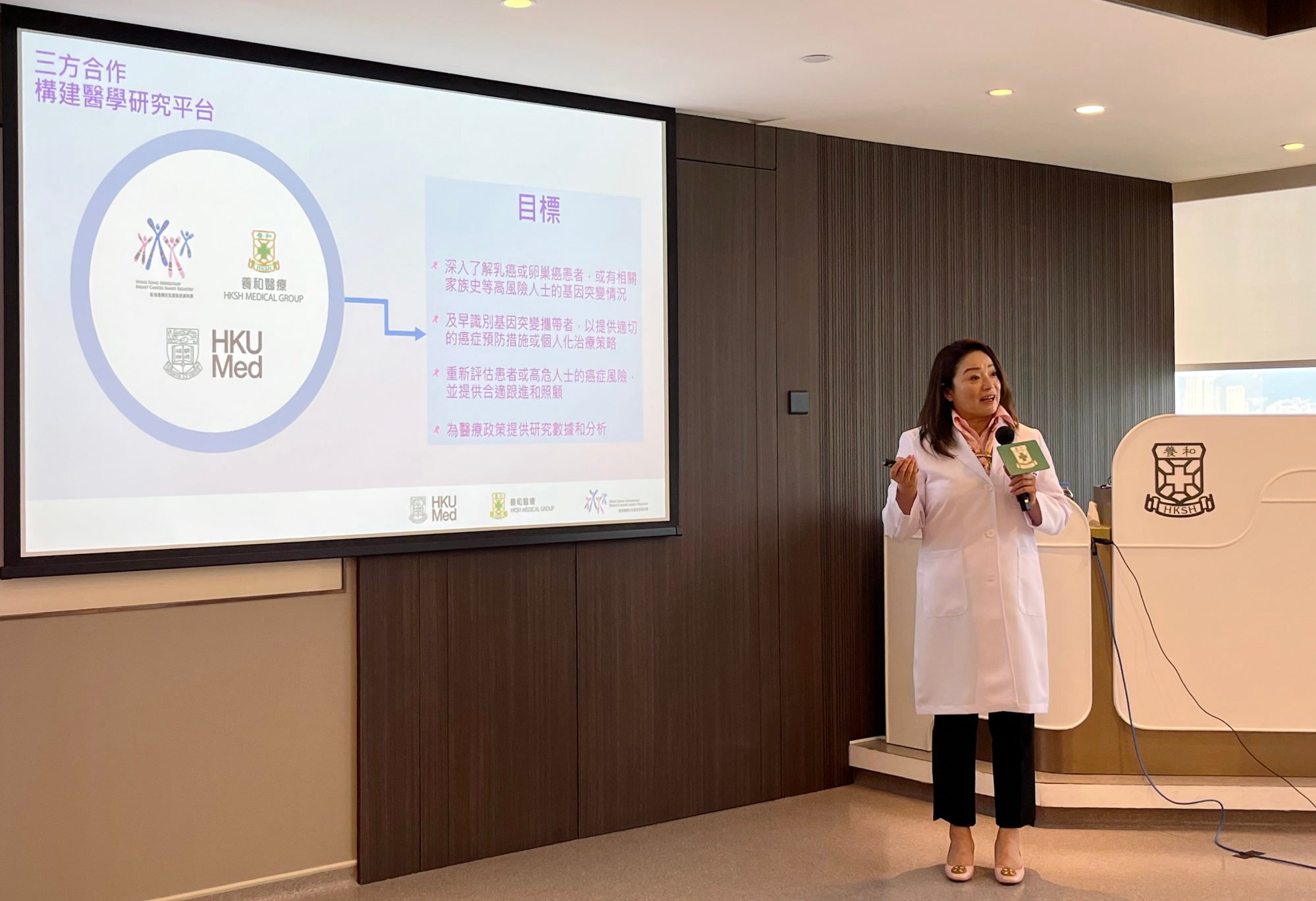Carriers of 2 rare gene mutations at higher risk of breast and ovarian cancers, Hong Kong research finds

[ad_1]
Two rare gene mutations identified among 4,900 breast and ovarian cancer patients and their family members will put carriers at higher risk of the disease, Hong Kong researchers have found.
For the research, jointly led by the HKSH Medical Group, the University of Hong Kong (HKU) and the Hong Kong Hereditary Breast Cancer Family Registry, genetic tests have been carried out on breast and ovarian cancer patients and people at risk since 2007.
“The latest technology allows us to look for more genes causing cancers,” Ava Kwong Hoi-wai, clinical professor of the HKU surgery department, said on Wednesday.
“We hope people with a higher risk of getting cancer, for example, those with a strong family history, can proactively seek a genetic test by getting a doctor’s referral or asking the registry, but I do not recommend buying testing kits on your own, because they may not have validations.”

Breast and ovarian cancers accounted for more than a third of newly diagnosed cases among Hong Kong women in 2020, resulting in the death of more than 1,000 that year.
About 10 to 15 per cent of breast and 15 to 25 per cent of ovarian cancer cases were hereditary, with the disease manifesting in multiple generations of a family, exhibiting earlier onset, and frequently involving multiple types.
Kwong, also the registry chairwoman, said the BRCA1 and BRCA2 gene mutations were long known for their strong association with breast and ovarian cancer. Around 10 per cent of the cases registered in the database are carrying them.
However, advanced genetic test technology allowed experts to identify more equally risky gene mutations in recent years, PALB2 and TP53. They account for respective 1.2 per cent and 0.6 per cent of all cases.
Cancer-causing toxins found in several suitcase brands: Hong Kong watchdog
Cancer-causing toxins found in several suitcase brands: Hong Kong watchdog
Kwong said that 52.8 per cent of women with PALB2 mutation would develop breast cancer by the age of 80, similar to those carrying BRCA ones.
People carrying TP53, meanwhile, have up to 90 per cent chance of developing breast cancer by the age of 80, often with onset before the age of 35 and a strong family history of multiple types of the disease. It was also the cause of some childhood cancer cases.
“Genetic tests allow you to measure the risk of getting the disease, and arrange screening, check-ups, or even surgery to remove breasts, ovaries, and Fallopian tubes to further reduce cancer risks,” Kwong said.

She added that the genetic test results also contributed to treatment, as ovarian cancer participants identified with some gene mutations would be eligible for a PARP inhibitor, a targeted therapy drug dedicated to them.
Currently, the city’s public hospitals are subsidising genetic tests and targeted drug therapies for ovarian cancer patients. Kwong said talks were being held with the government to expand the scope to cover breast cancer patients.
The team conducting the research aims to collect more clinical data to ascertain the effects of the genetic tests and accurately identify the high-risk groups. It also hopes to contribute to healthcare policy planning in the long run and benefit the population.
[ad_2]
Source link





